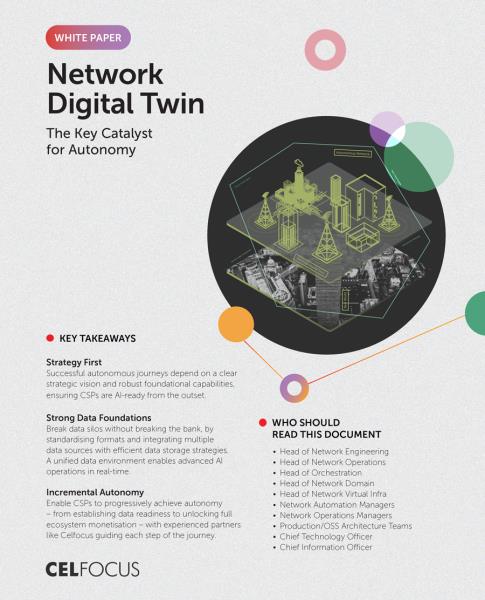12 February 2026

As telecommunications networks become more complex with 5G and cloud-native technologies, Communication Service Providers face increasing pressure to improve efficiency, resilience, and agility.
Network Digital Twins address these challenges by providing a dynamic, near real-time digital view of the network, unifying data across domains, enabling end-to-end visibility, faster issue resolution, and more informed decision-making. Together with intelligent agents, they enable the shift from reactive operations to predictive and autonomous network management.
Find out more12 February 2026

Berg Insight has released the latest edition of its comprehensive smart city technology report, comprising in-depth studies of five key technology areas: smart street lighting, smart parking, smart waste collection, urban air quality monitoring and smart city surveillance.
In 2024, the global installed base excluding China of individually controlled smart street lights amounted to 27.9 million units. The corresponding figures for the smart waste and smart parking sensor technology markets were at the same time 1.56 million and 1.47 million units respectively. Smart parking sensors refers to in-ground or surface-mounted parking occupancy detection sensors whilst smart waste sensor technology consists of fill-level sensor devices that may either be pre-integrated into bins and containers, for example as a smart bin offering, or retrofitted on existing collection points.
Find out more
11 February 2026

Prime Minister Abiy Ahmed officially inaugurated Ethiopia’s first smart police station on Monday, February 9, marking a significant step toward digitalizing law enforcement.
Unlike traditional stations, this facility operates without officers on-site, leveraging technology to provide citizens with faster, more accessible police services.
Find out more04 February 2026

Niger's Regulatory Authority for Electronic Communications and Postal Services (ARCEP) has taken a significant step to enhance its supervision of the telecommunications industry with the inauguration of a comprehensive ongoing monitoring platform.
Held in Niamey on January 28, the new system is designed to provide continuous oversight of mobile networks from technical, economic, and regulatory perspectives.
Find out more






